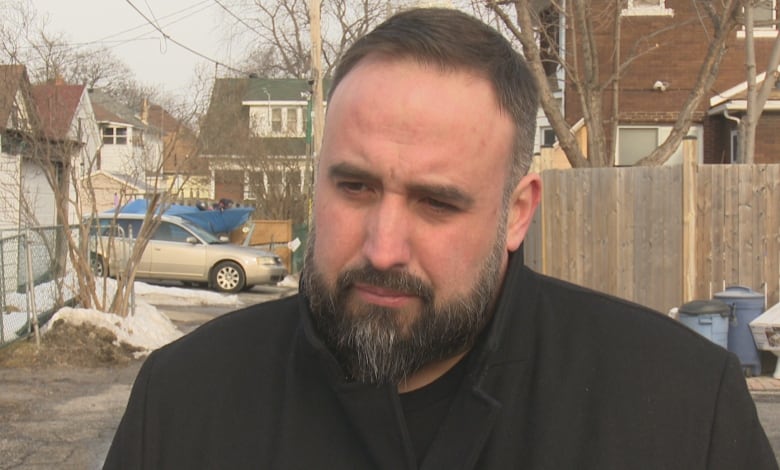3 Windsor police units to be equipped with naloxone within a year, chief promises
People in cellblock going into medical distress prompted chief to approve naloxone for some officers

Windsor police chief Pam Mizuno will make naloxone available to officers within three units and she promises to get it done in less than 12 months.
Mizuno told the police services board Thursday that officers in the Detention Unit will first have access to the drug that can reverse an opioid overdose. Friday she told CBC News she envisions expanding the program so that all front-line officers in the Problem Oriented Policing Unit and the City Centre Patrol will also carry Narcan, which is a nasal spray version of the drug.
"It would be all the officers [in those units.] It wouldn't be efficient to have it any other way," said Mizuno.
However, specific timelines as to when this may happen are unclear. She said the policy still needs to be finalized, training needs to happen and the Narcan needs to be procured, although it's free through the provincial government.
"We're not looking at a year here," said Mizuno. "It should be in the next little while. I can say less than a year, but I'm not going to guarantee within two or three weeks because I wouldn't want to be wrong about the timelines."
Windsor police is the only major city police service in Ontario that doesn't equip its officers with naloxone.
Prisoners in medical distress prompts change
The policy for providing naloxone to officers who keep an eye on prisoners was prompted by a need identified by the police service. Mizuno said there have been instances when someone went into medical distress within the cellblock, and EMS needed to be called. Mizuno wouldn't go into specifics about what happened and the outcomes of those incidents.

When asked why Mizuno isn't authorizing all front-line officers be equipped with naloxone, she acknowledged it's impossible to predict when police may encounter someone having an overdose. Still, she's not prepared to issue the drug service-wide.
"Basing our decisions on the information we have, we see it as a good idea to equip those officers first," said Mizuno. "No different than other services, I think, that have gone that way. I think Toronto went that way when they first rolled out Narcan."
COVID delays police discussions around naloxone
It's also unclear how long the Windsor Police Service has been discussing, or considering, equipping certain units with naloxone. Mizuno wouldn't say.
"Discussions around naloxone and the detention unit have been ongoing for a little while," said Mizuno. "I couldn't when the exact date was that we started discussing it, but with COVID happening in March some things do get set aside and get re-attended to ..."
Mizuno also said she doesn't believe the police service is moving too slowly on issuing naloxone to officers, despite a rise in opioid-related issues in our community.
Opioid-related issues going up in Windsor-Essex
The Windsor-Essex County Health Unit issued an alert this week about a spike in opioid overdoses — 11 between Oct. 13 and Oct. 20. Over a 24-hour period on Tuesday, health officials also said there were nine instances of substance misuse and overdose-related ER visits.
The number of opioid-related emergency department visits for May, June, July and September were the highest on record when compared to the same months in previous years.
Last week, CBC News reported the Windsor Police Service was first to arrive on the scene of an overdose where naloxone was eventually used at least 14 times over roughly a year.
According to Windsor police reports that describe when officers have responded to an incident and naloxone was administered, two officers were patrolling the riverfront in September 2019 when they noticed a woman in "medical distress."
They requested paramedics, and 39 minutes after they found her, naloxone was administered, according to the police report.
Getting to the root of the opioid crisis
City councillor, and police board member, Rino Bortolin said hopefully this sparks discussions about getting to the root of the problem.
"Let's now start talking about why is the province not giving more money for beds, for treatment in addiction services? We really need to be talking about solutions to this problem, not the band-aids ... [like] treating things with naloxone," he said.

"What we should be talking about is what kind of investment and what kind of resources are we putting into addictions services. We should be looking to reduce the number of addictions in the first place."
Mizuno said she's not closing the door on equipping all officers with naloxone. The priority now, she said, is getting naloxone in the hands of officers in three units where Mizuno believes it's most needed.


